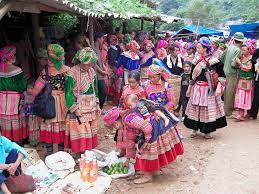Culturally Competent Intervention for Addressing Mental Health Needs of the Hmong Community in Houston
 Mental Health Needs of the Hmong Community
Mental Health Needs of the Hmong Community
Following exploring the Hmong community’s challenges in Houston, this paper proposes a culturally competent macro-level intervention to address their mental health needs. Drawing from the biopsychosocial approach and evidence-based interventions, this intervention aims to promote mental well-being within the Hmong community and ensure equitable access to mental health services.
Mental Health Needs of the Hmong Community: Understanding the Biopsychosocial Approach
The biopsychosocial approach to healthcare recognizes that biological, psychological, and social factors influence an individual’s health and well-being. This approach underscores the need to address mental health issues within the Hmong community by considering these interconnected aspects:
- Biological Factors: Genetic predispositions, physical health, and neurological factors can all impact mental well-being. Access to culturally competent healthcare services is vital in the Hmong community to address these biological factors effectively.
- Psychological Factors: Psychological factors include coping mechanisms, individual experiences, and mental health conditions. Many Hmong individuals may suffer from trauma-related disorders, such as PTSD, stemming from their history of war and displacement.
- Social Factors: Social determinants of mental health encompass cultural beliefs, socioeconomic status, discrimination, and access to resources. Discrimination and a lack of culturally sensitive services can hinder the social well-being of Hmong individuals.
Mental Health Needs of the Hmong Community: Culturally Competent Macro-Level Intervention
To address the mental health needs of the Hmong community in Houston, a comprehensive macro-level intervention is proposed, focusing on the biopsychosocial model:
- Cultural Competency Training: Implement culturally competent training programs for mental health professionals, healthcare providers, law enforcement personnel, and educators in the Houston area. These programs should include cultural awareness, language proficiency, and sensitivity training.
- Community Outreach and Education: Develop community outreach initiatives to raise awareness about mental health and reduce the stigma associated with seeking help. This can involve culturally appropriate workshops, seminars, and informational materials distributed within the Hmong community.
- Culturally Tailored Mental Health Services: Establish culturally tailored mental health services within the Hmong community. This includes recruiting Hmong-speaking mental health professionals and creating safe spaces where individuals can access culturally sensitive therapy and support.
- Mental Health Screenings: Collaborate with local healthcare providers to conduct regular mental health screenings within the Hmong community. These screenings can identify individuals in need of support and facilitate early intervention.
- Peer Support Programs: Develop peer support programs within the Hmong community, where individuals who have overcome mental health challenges can mentor and support others. This creates a network of understanding and solidarity.
- Crisis Helplines: Set up a catastrophe helpline staffed by bilingual Hmong-speaking professionals to provide immediate support to those in crisis or distress. This ensures that individuals have access to help when needed.
Recommendations and Local Resources
In concurrence with the proposed intervention, it is vital to provide a set of recommendations and local resources to address mental health needs effectively within the Hmong community:
- Hmong Mental Health Associations: Collaborate with existing Hmong mental health associations and organizations, such as the Hmong American Mental Health Association (HAMHA), to provide resources and support.
- Language Access: Ensure all mental health services, including interpreters and bilingual staff, have language access options to facilitate communication.
- Culturally Sensitive Materials: Develop informational materials about mental health in the Hmong language and culturally appropriate formats, making them accessible within the community.
- Collaboration with Schools: Partner with local schools to implement mental health education programs, ensuring that Hmong students and their families know available resources.
- Access to Affordable Services: Advocate for affordable mental health services and insurance coverage within the Hmong community, addressing financial barriers to accessing care.
- Community Support Groups: Encourage the creation of Hmong-specific mental health support groups and peer mentoring programs to provide a sense of belonging and understanding.
- https://youtu.be/6o9vRCBotog?si=IU7XNgVf7WfZiHWt
Conclusion to Mental Health Needs of the Hmong Community
The proposed macro-level intervention for addressing the mental health needs of the Hmong community in Houston draws from the biopsychosocial approach and evidence-based practices. By focusing on cultural competency, community education, tailored services, and local resources, this intervention aims to promote mental well-being and equity within the Hmong community. It underscores the importance of recognizing the interconnectedness of biological, psychological, and social factors in addressing mental health issues and fostering a more inclusive and supportive environment for the Hmong community in Houston.
References to Mental Health Needs of the Hmong Community
Collier, A.F., Munger, M. and Moua, Y.K. (2011). Hmong Mental Health Needs Assessment: A Community-Based Partnership in a Small Mid-Western Community. American Journal of Community Psychology, 49(1-2), pp.73–86. doi:https://doi.org/10.1007/s10464-011-9436-z.
Stinson, K. (2020). HMONG SHAMANISM, HEALTH DISPARITIES, AND ACCULTURATION: 40 YEARS IN THE UNITED STATES Signature of Advisor. [online] Available at: https://minds.wisconsin.edu/bitstream/handle/1793/80490/Lee%2C%20Diane.pdf?sequence=1.





